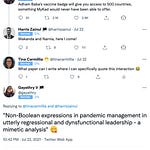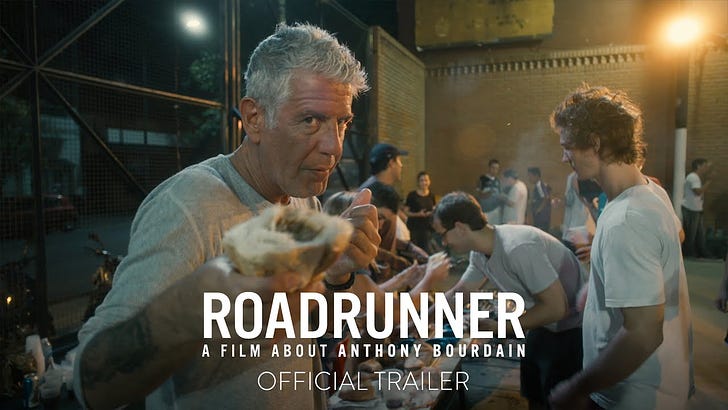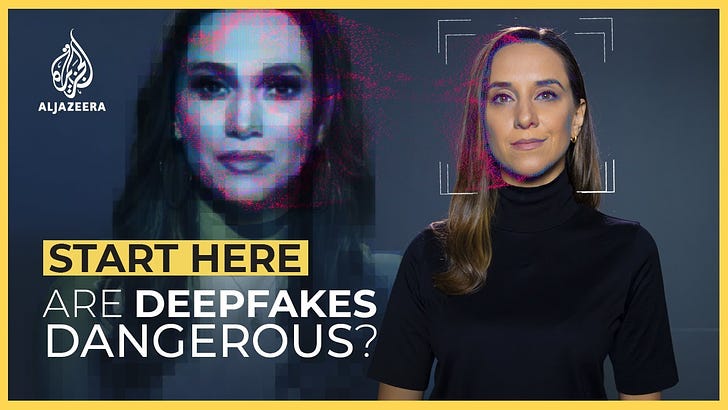A message in mime and Malay
This week, I spent most of the time writing a long essay in Malay about the COVID-19 vaccine that I am turning it into a few short videos. I mean, look at the raw sketch above. Perhaps I’m making up for the absence of the Malay segment for the last few weeks.
Lie of the Year: Coronavirus downplay and denial
Every year, PolitiFact editors review the year’s most inaccurate statements to find and crown the Lie of the Year.
From data ‘hijacking’ to Plandemic, Daniel Funke and Katie Sanders outline the course of the coronavirus disinformation throughout the year:
President Donald J. Trump fueled confusion and conspiracies from the earliest days of the coronavirus pandemic […] but the infodemic was not the work of a single person.
Anonymous bad actors offered up junk science. Online sceptics made bogus accusations that hospitals padded their coronavirus case numbers to generate bonus payments. Influential TV and radio opinion hosts told millions of viewers that social distancing was a joke and that states had all of the personal protective equipment they needed (when they didn’t).
It was a symphony of counter-narrative, and Trump was the conductor, if not the composer. The message: The threat to your health was overhyped to hurt the political fortunes of the president.
Psychology explains why Christmas with family is risky
The ‘intimacy paradox’ tells us about dangerous decisions made by close groups, writes Stephen Reicher for The Guardian:
It’s difficult to perceive the home you grew up in, or time spent with the people closest to you, as “risky”. But what you might not be aware of is the “the intimacy paradox”, which can lead us to be most in danger with people and in places who are most familiar to us and with whom we feel the safest.
For many years, I have studied how intimacy is produced between people, especially in groups, and how it affects our feelings, thoughts and actions even at the most visceral level. In one study I conducted at the University of St Andrews, where I teach psychology, we asked students to smell soiled, sweaty T-shirts. These either had our logo or a Dundee University logo. When it was the former, they were only mildly perturbed – when they were done, they strolled over to clean their hands, used a modicum of soap and did only a perfunctory wash. But when it was the latter, they screwed their faces up in true disgust, they rushed over to get clean and used copious soap for a prolonged scrub. In short, disgust for the ingroup sweat was far less than that for the outgroup.
Read more about the studies he has conducted on this subject.
Poynter’s MediaWise for Seniors significantly increases ability to detect disinformation
That’s according to a white paper published by Stanford Social Media Lab. Ryan C. Moore and Jeffrey T. Hancock at Stanford University, taken in part:
In addition to more accurately being able to judge the veracity of news headlines, MediaWise enrollees also became more likely to report doing research online to inform their judgement of the headlines in the survey. Pretest, the average rate of researching headlines prior to making judgements was 2.9% and posttest the average rate jumped to 69.6%. Because we do not observe this pattern in the control group (their pretest average researching rate = 2.7%; posttest rate = 2%), it is unlikely this effect in the MediaWise enrollee group was driven by priming in the survey instrument.
It will be crucial to assess the scalability of this program and to test its effects on larger, more representative samples of older adults.
Time to send our parents back to school, kids! The problem, of course, is these courses are in English, and any “research online to inform their judgement of the headlines” will return search results in… well, English.
What I read, watch and listen to…
I’m reading the US FDA’s briefing document on Moderna’s COVID-19 vaccine.
I’m talking to the Fake News Immunity Chatbot.
Chart of the week
The British Medical Journal published an interactive authorship anatomy chart and wished everyone a BMJ Christmas.














